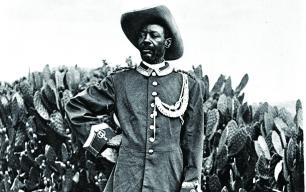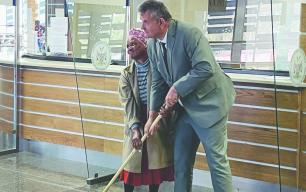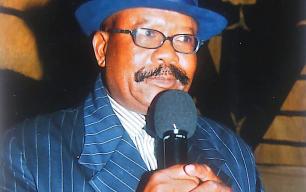Tribute: To Ras Sheehama 1966 - 2025 - The Reggae Legend Who Sang Truth Into Namibia’s Soul

By Hilja Shikongo
When the name Ras Sheehama is mentioned, it immediately stirs memories of reggae rhythms that spoke to Namibia’s soul. His songs Inotila, Cassinga, City Young Girl, Kandjafa, and Money were more than melodies. They were storytelling, therapy, and resistance wrapped in music. They became an archive of a people’s struggles and triumphs, a soundtrack to Namibia’s journey from liberation to nationhood.
Today, as Namibia gathers for his tribute concert and memorial, the country is not simply mourning the passing of a man. It is celebrating the life and legacy of an artist who embodied humility, love, and a tireless commitment to truth.
Colleagues in the music industry are unanimous about Sheehama’s role as a cultural anchor. Veteran singer Big Ben Kandukira describes him as “the ultimate example of a musician that has contributed to Namibian society culturally.”
For Big Ben, Ras was more than just another name in the entertainment industry. He was a griot a storyteller who ensured that the nation’s pains, victories, and aspirations were never forgotten.
“His songs narrate our nation’s story from the liberation struggle to independence and beyond,” Big Ben says.
This narrative quality set Ras apart. Where others sang for the moment, Ras sang for history. His lyrics carried memory of exile, of returning home, of rebuilding identity and with them, a vision of a Namibia grounded in justice and unity.
Yet to his family, Ras was never defined only by fame. His younger sister Miina ‘Wawaz’ Sheehama-Kol remembers him as a brother whose humility outshone all else.
“Ras was not materialistic,” she reflects. “He cared about people. He gave what little he had to those in need. Through his music, he always told us to remain human, to be humble, forgiving, and peaceful.”
Her words strip away the spotlight and reveal a man who lived his music. What he preached on stage kindness, patience, love he practiced at home.
Miina is also quick to emphasize that, despite speculation, her brother’s passing was not linked to despair. “That note did not look like a suicide note. Ras never presented hopelessness to us as a family,” she says firmly. “He was a loving husband to his wife Saskia, father, and protector.”
To his children, Ras was not a reggae icon but a dad who gave guidance, warmth, and security.
One of Ras Sheehama’s lasting contributions is his role as a mentor. Younger artists remember him as approachable, generous with advice, and deeply invested in their growth.
Colleague and collaborator Konrad “Kamasutra” Kamari recalls how their joint track Money, nominated at the Namibian Annual Music Awards (NAMA), revealed Ras’s perfectionism and professionalism.
“He was an uncle, brother, and advisor,” Kamari says. “In the studio, he pushed us to think deeper about lyrics and meaning. Outside the studio, he inspired us as the younger generation.”
But his mentorship was not only about the technicalities of music. He offered perspective. He reminded rising artists that music was not just a career, but a responsibility a way to give voice to the voiceless.
From the liberation struggle to post-independence Namibia, Ras consistently used his music as a tool of social critique and healing.
Songs like Cassinga captured historic trauma, while others like Inotila and City Young Girl reflected the everyday struggles and hopes of ordinary Namibians.
“He was a voice of social consciousness,” Big Ben affirms. And indeed, Ras’s catalogue reveals a man who never abandoned the duty of truth-telling. He sang about corruption, inequality, and poverty, but also about love, resilience, and the necessity of hope.
It is this balance between protest and healing that solidified his place as a true reggae legend. He was never just an entertainer. He was an educator, an activist, and a comforter.
Music manager Zenao Andowa, who first featured Ras on her pioneering website Nammusic.com in 2005, reflects on his work ethic and artistry.
“Ras had incredible work ethic, was lyrically talented and an incredible performer,” she says. Over the years, their relationship shifted from professional collaboration to personal friendship. “Over time, he became family. I will dearly miss him.”
Her testimony highlights something Ras consistently embodied: relationships mattered. Whether with fans, fellow musicians, or colleagues, he left people feeling valued and respected.
As Namibians converge at Zoo Park for the Tribute Concert & Memorial, the event becomes more than a gathering. It is a continuation of Ras’s mission.
Organizer Castro explains that the idea behind the tribute is to create a space where music can once again unify Namibians.
“This concert is not only about remembering Ras, but about ensuring his values live on through the younger generation,” he says.
The free-entry event is a deliberate choice a reflection of Ras’s belief that music should be accessible to all. Through performances, speeches, and memories, the night will transform into a living archive of his life’s work.
Ras Sheehama’s story is not simply one of a talented reggae artist. It is the story of a man who believed in the power of music to change lives.
He mentored the young, advocated for the marginalized, and sang for justice when silence was more comfortable.
His family asks that Namibians remember him not only for his songs, but for his spirit. “He always told us to remain human,” his sister Miina says softly.
As the country sings along to his anthems, Ras Sheehama’s voice will echo far beyond the stage. His music remains, his values endure, and his legacy of love, humility, and truth belongs to all of Namibia.
Tributes have poured in from across Namibia from fans, friends, fellow artists and senior politicians, including the president, after the sudden death of Ras Sheehama, the revered reggae musician celebrated for songs of resistance, unity and hope.
President Netumbo Nandi-Ndaitwah said she was “deeply saddened” by the loss of what she described as “a true legend of Namibian music and culture.”
“Ras Sheehama was more than a reggae artist; he was a voice of hope, resistance and unity who inspired generations before and after independence. Through his music, he embodied the spirit of freedom and reminded us of art's power to heal, challenge, and uplift.”
Sheehama, 59, died by suicide, police confirmed. His body was discovered early on Friday alongside a note, a statement added.
Prime Minister Elijah Ngurare, who in July candidly shared his own battle with suicidal thoughts, described the loss as “immensely painful.”
In a message shared on social media, he wrote: “May His Revolutionary Soul Rest In Eternal Peace. I join Her Excellency the President to convey our deepest condolences to the bereaved family and nation."
The premier added: "Undoubtedly, Ras Sheehama was one of the exceptional trendsetters of Namibia’s creative industry. May his legacy of hard work, natural talent and musical ingenuity live on to the present and future generations.”
Singer Erna Chimu also shared an emotional tribute, recalling her personal journey with the late icon.
“I met Ras many years ago, when I was a backing vocalist for my brother’s band called Shemyetu. He was more my brother’s friend then, but he encouraged me to go solo even when I wasn’t too confident,” she said.
“Years later, we bonded during our trip to China, and he became so protective and supportive of me. We even battled in Last Band Standing, where I was runner-up. Over time, our friendship grew he was there for all my birthdays, always present, always caring.”
For Chimu, Ras was more than just a colleague. “He was my protector, friend, and confidant. His kindness and compassion extended beyond his music, showing his dedication to those around him.”
She also stressed the need for transformation in Namibia’s music industry. “His passing should remind us of the struggles many artists face depression is real. Musicians need fair appreciation and compensation. Let Ras’s legacy inspire change so that no artist suffers in silence.”
May his legacy continue to inspire and motivate others, and may his passing serve as a catalyst for a stronger, fairer creative industry.
- 395 views










Comments